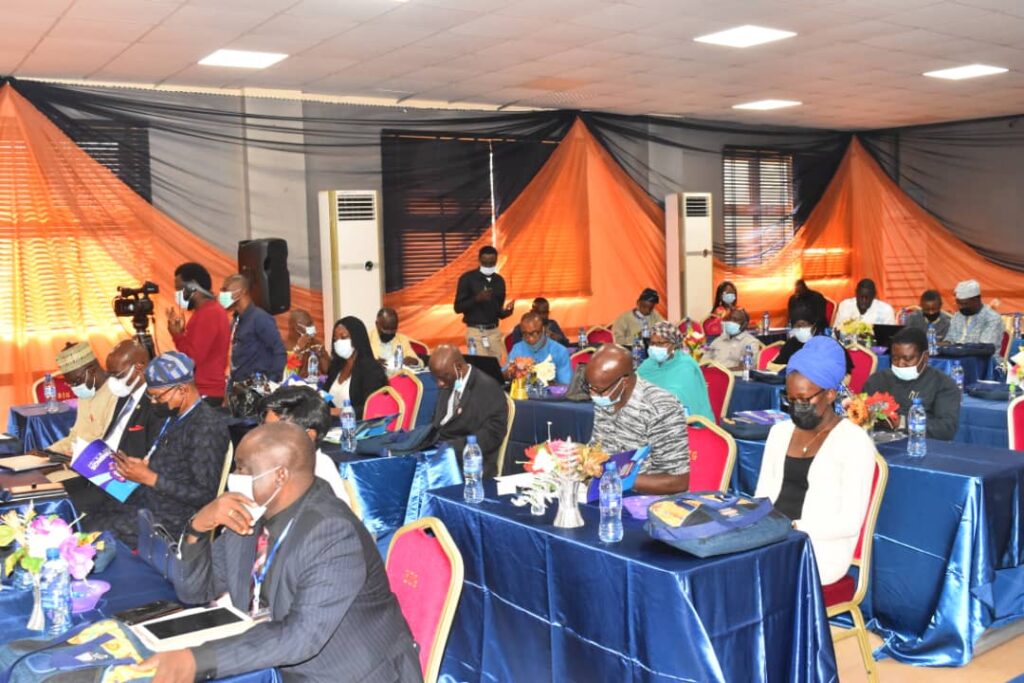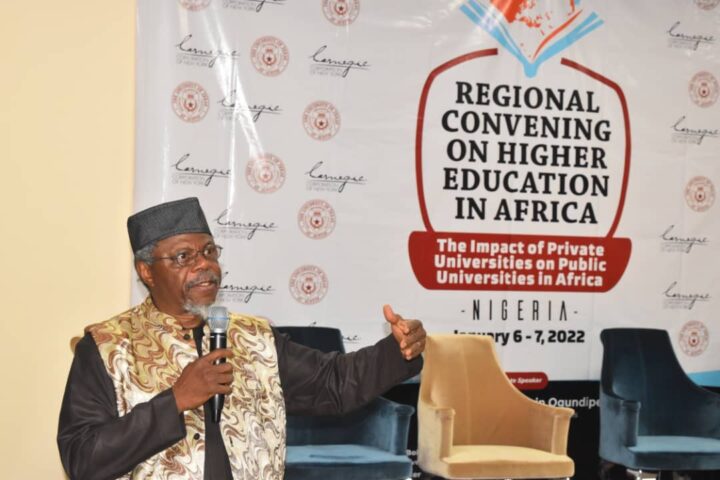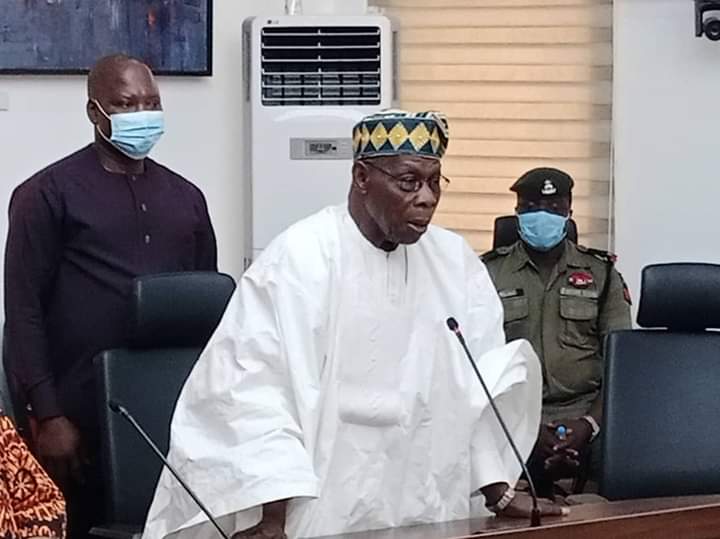Toyin Falola, professor of history at the University of Texas, says public and private tertiary institutions across Africa need to find more ways of collaboration in order to improve the education sector.
Falola said this in his address at the ongoing regional conference organised under his supervision, with the support of the Carnegie Corporation of New York and the University of Texas.
The two-day conference, which began on Thursday and will end on Friday, featured university administrators from Nigeria, Ghana, South Africa, Kenya, and Uganda.
According to Falola, improved relationships between private and public institutions will also ensure quality research output.
Advertisement
“The regional convening is part of a larger project to study the impact of private universities on public universities in Africa,” he said.
“Through commissioned research and two regional stakeholder convenings in Nigeria and Kenya, the project seeks to explore the effects of private universities on public academic institutions in Uganda, Nigeria, South Africa, Kenya, and Ghana.
“Against the backdrop of the increasing wave of private universities, public universities are affected by the poaching of faculty members, competition for bright students, and changing public perception about the role of private universities.
Advertisement
“In some instances, the increasing relevance of private universities is underscored by the problems associated with public institutions, such as frequent strikes, reduced capacity to admit students, and limited technological infrastructures and facilities.
“At the same time, there are scepticisms around private universities, based on the perception that many of them lack faculty members of the requisite quality and quantity. This, in turn, affects research output as well as the competence or knowledge base of graduates, also resulting in low academic standards, limited programmes focused on expensive fields of study, and poor infrastructure.
“Policy approaches and theoretical perspectives on private universities vary, especially in Africa. Although some consider private education to be beneficial, complementing public universities, there are concerns that many institutions are profit-oriented, abandoning quality or ignoring the state’s social obligation to provide affordable education.
“Despite these concerns, private universities have made immense contributions to different African countries. They have alleviated the burden of access placed on public universities, contributed to innovations in curricula, led to increased employability of graduates, and provided new models of educational delivery and funding. Some have outpaced and out-performed public universities.
Advertisement
“Although the importance of private universities is growing, there is a paucity of research on the governance models of these universities and the additional burdens they place on public universities. This project seeks to fill the gap in research and enlighten higher education policymakers through two regional stakeholder convenings and publications.
“The regional convening will afford key stakeholders a unique opportunity to share perspectives and provide insights that may inform new policies and foster international support for managing the relationship between private and public universities. The overall objective is to improve the quality of research and teaching in the higher education sector in Africa.”
Oluwatoyin Ogundipe, vice-chancellor, University of Lagos, in his keynote address, said the failure of governments in some African sub-regions in financing public universities contributes to the seeming proliferation of private institutions.
“There is also the issue of ineffective policy support which is a very big problem in this part of the world. Generally, no formal relationship exists between private and public universities,” he said.
Advertisement
“Many universities in Nigeria prefer to have partnerships with foreign universities. Some lecturers from public universities unofficially work for hours in private institutions.
“There is the need to develop a new and healthy competitive relationship for improvement of standards. The standards need to be improved in the private universities and some of the public universities.
Advertisement
“Initially, there are linkages and staff exchange, sharing of facilities, joint committee membership. In Nigeria, NUC started something whereby new universities were linked up with older ones wherein the old university would mentor the new university. In the process, there is the exchange of staff and students, facilities, seminars.
“In public universities, problems include frequent strike actions, limited admission quota. The government would set up a university, release a start-up fund of maybe N2 billion, and that will be all. What about having good facilities that would be needed to run the universities to be able to compete with other universities at the local and global level? We never consider that. This also affects the availability of technology facilities. These facilities are very expensive.
Advertisement
“Private universities are perceived to have limited faculty members; they scout for lecturers from public universities, even for non-teaching staff from other public universities. They have limited programmes. Many of them start with less expensive fields of study. When we carried out a study, we found out that the programme that is most expensive to run is dentistry, not even medicine.
“Many private universities do not have the needed facilities. Many of their programmes are expensive. The gap between demand and availability of spaces in both private and public universities also include: enhanced access to university education, innovations in curricula, increased employability of graduates, provision of new models of educational deliveries, functional libraries, adequate teaching classroom space, sufficient furnishing of staff, adequate laboratory equipment, adequate provision of catering services for students. These are facilities you get in good private universities which are absent in many public universities.”
Advertisement
The conference also featured country research reports from Nigeria, Kenya, and South Africa.
There were also deliberations on reforming public universities; the impact of private institutions on public universities; the roles of founders and donors; the role of policymaking, among others.

Add a comment






